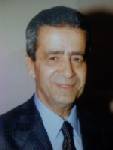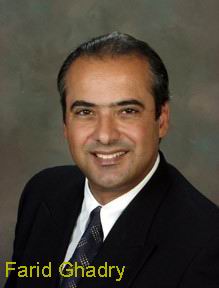|
The fight for Lebanon's
freedom
By Farid Ghadry and Sami El-Khoury
March 14, 2008
 
Today, Lebanon begins the third year after a historic demonstration
mourning the assassination of Rafiq Hariri, the populist former prime
minister who has been credited with rebuilding Lebanon after 15 years of
civil war. The Lebanese people have yet to see justice come to those
responsible for his killing three years after more than one million
Lebanese (that is one-third the country's population) took to the
streets of Beirut to protest his cold-blooded murder.
The peace march on March 14, 2005, dubbed the Cedar Revolution, gave
birth to the "March 14" group, an amalgamation of all the political
organizations opposed to Syria's presence on Lebanese soil and who hold
the majority of seats in the parliament. Since that momentous date, many
Lebanese and Syrians alike believe that "March 14" has virtually
squandered almost all the opportunities afforded to them by the
international community. In fact, four different U.N. resolutions later,
U.S. support of the Lebanese army, and a war in 2006 between Israel and
Hezbollah that clipped Hezbollah's wings, the group has yet to take
advantage of these opportunities through bold actions.
After the expected but sudden departure from Baabda of Lebanese turncoat
President Emile Lahoud, President Bush and Secretary of State
Condoleezza Rice publicly encouraged "March 14" to elect a new Lebanese
president because the group held majority seats in the parliament; one
that can meet anywhere since its speaker, Nabih Berri, another Syrian
operative, refused to convene it. The leadership of "March 14," to the
dismay of many Lebanese Americans, who have worked hard for U.S. help,
refused to exercise its constitutional right to ignore Hezbollah and
Syria and elect a new president for Lebanon.
"March 14," from the start, took on a conciliatory tone with Hezbollah,
yielding to many of its demands under the auspices of consensus-building
and avoiding confrontation. That was by far their biggest blunder. With
the exception of Samir Geagea, the vocal Christian leader, the
organization has been unable to develop a cohesive strategy against
Hezbollah terror. As an example, some in the leadership excluded other
potent anti-Hezbollah players from their inner circle, which relieved
them of greater options. One such Lebanese politician is Ahmad al-Assaad,
a maverick Shi'ite with a notable history in Lebanese politics who was,
and still is, willing to play spoiler to Hezbollah's grand schemes. Mr.
Assaad visited Washington lately and his message was powerful enough to
get the attention of many in the Bush administration.
But unlike Mr. Assaad's message of logic, Druze leader Walid Jumblatt,
who also visited Washington several times in the past year, could not
resist the occasion to shore up privately and publicly the Syrian Muslim
Brotherhood (SMB) and the former vice president of Syria, Abdul Halim
Khaddam, a much-disliked figure inside Syria, at the behest of a scheme
concocted in Saudi Arabia by Bandar Bin Sultan, the former Saudi
ambassador to the United States. For those who are privy to Syrian
President Bashar Assad's own spin in Washington know well that he
projects the Syrian Muslim Brotherhood as a scarecrow by telling Western
policy-makers that "If not me, it will be the SMB, Syria's Hamas." For
Mr. Jumblatt not to be aware of Mr. Assad's strategy in Washington is
inexcusable, and for him to support a movement that is not only
unacceptable in Syria and unwelcome in Washington but also promotes Mr.
Assad's own agenda is downright irresponsible.
During his last address at the Washington Institute for Near East
Policy, Mr. Jumblatt finally got it right and refrained from his overt
support of the hard-core Islamists by calling for the United States to
back the "credible opposition," which many have come to interpret, and
rightly so, as support for the Damascus Declaration opposition inside
Syria. All is not lost, but unless "March 14" gets serious about
Hezbollah by openly confronting the terrorist organization through such
bold steps as striking a separate peace with Israel before Mr. Assad
does at the expense of Lebanon, the movement will continue to struggle
against an enemy that is far more effective because of its terror-laden
tactics.
The United States has sent plenty of signals lately to the group that it
is up to them to control their destiny. Should the organization fail to
take the necessary steps to protect Lebanon from Hezbollah, eventually,
even the United States may simply just abandon the group for its lack of
resolve in favor of other rising Lebanese politicians with marketability
and credibility such as Ahmad al-Assaad.
**Farid Ghadry is president of the Reform Party of Syria. Sami El-Khoury,
who served as consul to the Lebanese Embassy in Ecuador, is president of
the World Maronite Union. |